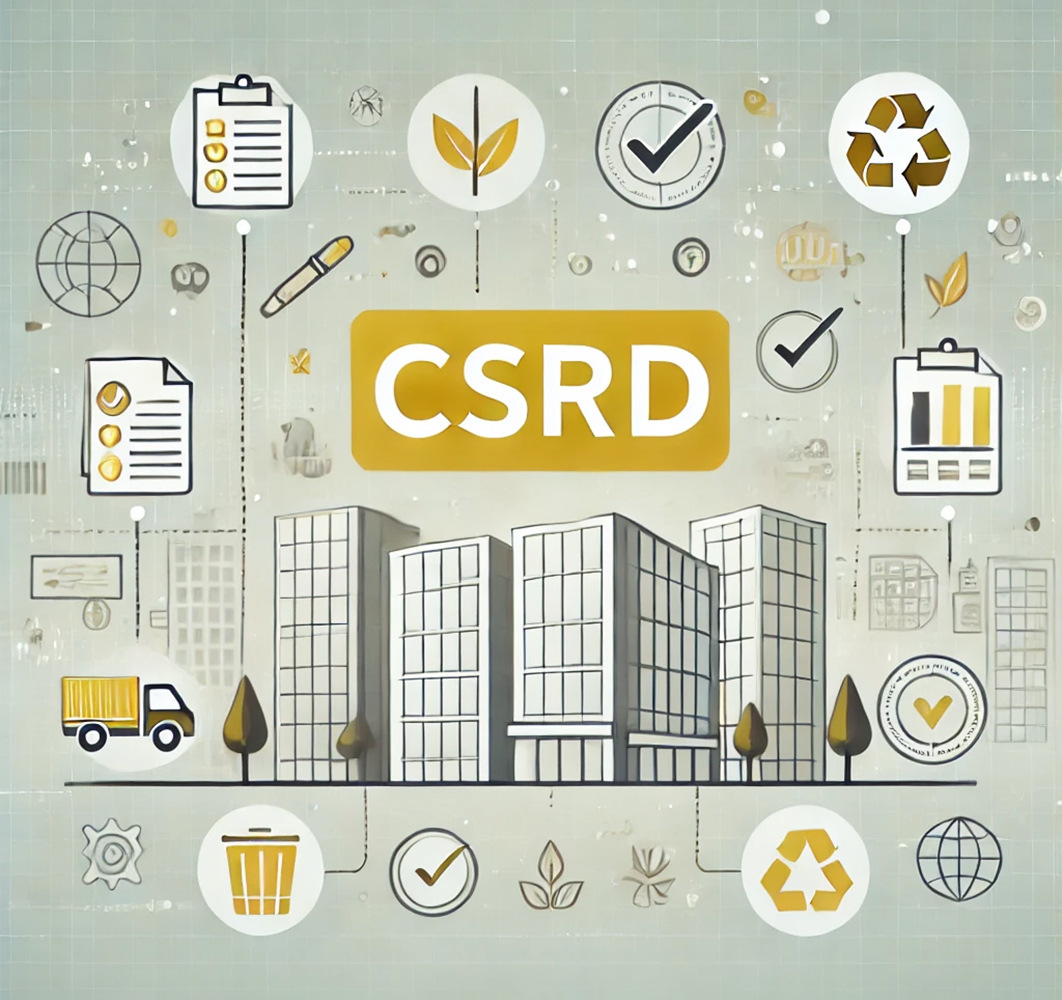The introduction of the CSRD (Corporate Sustainability Reporting Directive) is causing major changes in sustainability reporting for many companies. In this blog, we show how prepared companies already are for the new requirements, as initial reports often require months of preparation.
The first deadline in sight
The first deadline for the CSRD (Corporate Sustainability Reporting Directive) for companies with more than 250 employees, a revenue of more than 40 million euros or a balance sheet total of 20 million euros is approaching. This means that companies will soon have to report how they deal with issues such as climate change, human rights and sustainable business management. For these companies, it means that the deadline of first delivery will take place as early as 2025. For other companies, it means they will have to start keeping sustainability reports from January 2025.
What is the current status?
Companies required to submit reporting in 2025 have a high level of awareness of the CSRD. These are large, EU-listed companies, banks and insurers. They report on 2024 according to the CSRD directive, which means they had to be in the starting blocks by January 1. 75% percent of these large companies have now incorporated ESG targets into their top management's evaluation systems, which is an important step in aligning corporate strategies with sustainability goals.
From 2026, the CSRD directive also applies to listed SMEs (SMEs),where the reporting covers the year 2025. Here, they should therefore start providing insight into the topics on which the CSRD applies as of January 1 next year. SME (small and medium-sized enterprise) companies that are not listed on the stock exchange are likely to have their turn the following year. Last winter, ABN AMBRO published a forecast of the CSRD, which showed that two-thirds of SMEs (SMBs) did not yet know what the CSRD entailed.
Why should businesses get started?
The CSRD aims to improve transparency so that investors, customers and other stakeholders, can understand a company's sustainability. It also does offer relevance to SMEs (SMBs) that are not duty-bound. Indeed, large companies already covered by the CSRD must report on the sustainability performance of their entire value chain, including their suppliers. This means that small and medium-sized companies that supply these companies may be indirectly affected by the CSRD. In this case, large companies can ask them for information on their sustainability policies so that they can meet their own reporting obligation.
In addition, there is a growing priority on sustainability from investors. CSRD preparation can be a good step toward transparent sustainable companies. In this sense, this is attractive to clients and investors, which can lead to competitive advantage within the industry.
Because the CSRD is an EU law, fines are set by member states. France, for example, has announced a fine of up to €81,400 and imprisonment for up to five years for business leaders who fail to comply.
Is there a difference in the Netherlands and Belgium?
In the Netherlands, willingness to comply with the CSRD is high. As many as 75% of Dutch companies expect to be ready in time to report on their sustainability performance according to the new guideline. A percentage significantly higher than the European average of 63%.
Although only one-fifth of Belgian companies are currently required to report according to the CSRD, two-thirds are already preparing for the directive. This is being driven in part by external pressure: 43% of companies are already receiving questions from customers and suppliers about their sustainability performance in line with the CSRD
In the field of waste registration, Belgium, and Flanders in particular, is leading the way. The Flemish system, MATIS, imposes a detailed obligation on companies to register waste streams This system is more robust than the Dutch system MIS, which is less detailed.
More to know?
Are you looking for more information or support on CSRD integration? Download our free starter kit or roadmap so you can get started worry-free. We also host regular webinars, efficiently navigating through the CSRD timeline so you can get started with practical tools right away.
Do you want to stay up to date with all the developments around CSRD? We regularly publish new blogs on the guideline. Follow us on LinkedIn or subscribe to our newsletter and stay informed.













